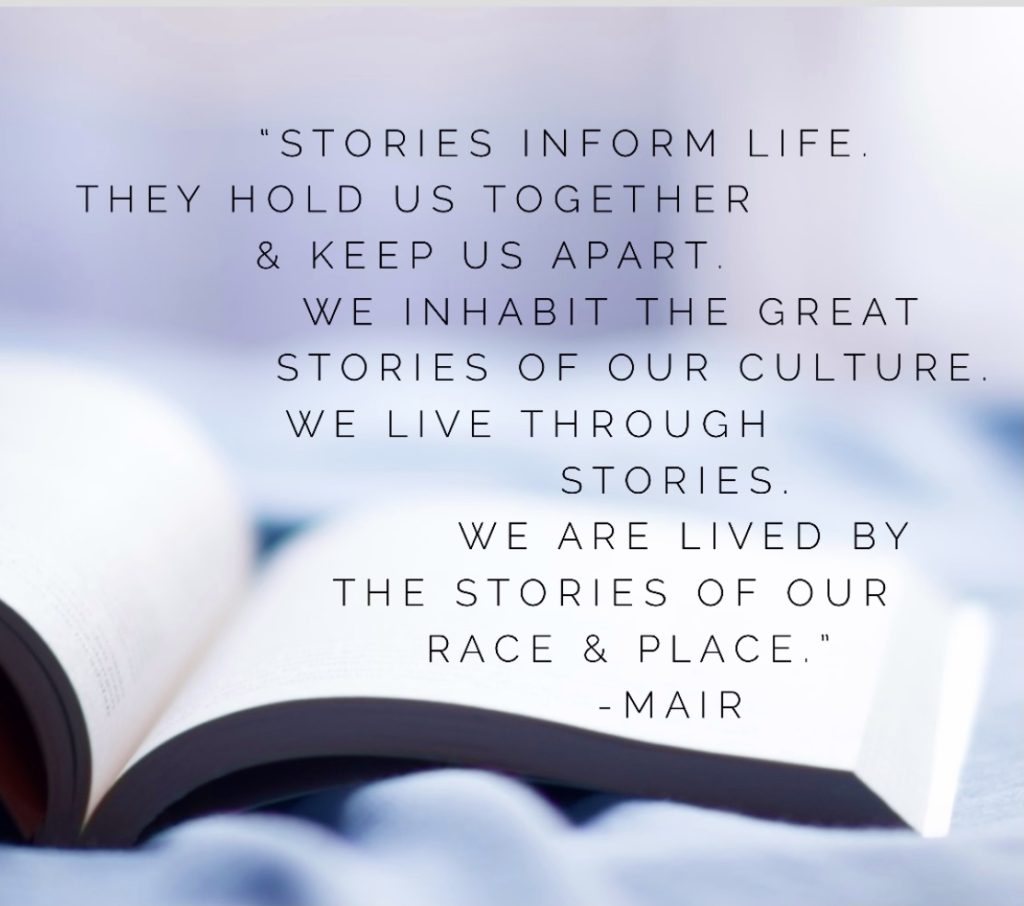
This week, as we were watching the second impeachment trial of Donald Trump, someone on the screen called the January 6th insurrection “Un-American.”
“Is it really Un-American, though?” my 10 year old responded.
At age 10, he perceived it well. White people coming together to enact violence because we feel someone trying to take what we’ve claimed; or when we sense our social position or ideas of truth being questioned – this seems to fit well with the American story. How does the insurrection fit into our story of unity?
I’ve heard some suggest that it causes division if we reckon with what happened that day in January or attend to our country’s story of race and power. I also see throughout American culture the notion that if we speak about and address the ways we other-ize and subjugate people, it brings division.
Lately too, I’ve also heard many people calling for unity. But what is the story of unity that are we being called into?
Stories matter – both the big stories we inherit through culture and the individual narratives we author. Stories help us make meaning of our lives. Our narrative of unity matters. Unfortunately, any cheerful story of unity here is more a hoped for, than an actual story of who we are.
Unity, as I knew it for a long time, was a story of fitting in – it was about maintaining the distinctly American stories of what it means to be Christian, white and female. Unity involved not talking about difference – not talking openly at least. It insisted I prop up the ideal of solidarity; even if it meant making allowances for how we define people in limiting ways; even if it meant ignoring suppressive practices; even if it meant setting aside how the stories we tell and the ways our narrative gets written, keep us apart.
The story of American unity that I came by, keeps with the same socially-advantageous theme of whiteness found throughout US culture. It’s a white washed version of togetherness – told from the perspective and social position of whiteness. It lacks depth, omits truths and downplays the benefits of being raced as white. It’s a narrative meant to maintain white superiority.
The stories I learned about race flowed out of this idea of unity. I learned a narrative of racial unity about a melting pot and color blindness. It said everyone comes together, with all our difference, to form one united people. It was a unity that proclaimed it celebrated un-likeness and variety, even as we couldn’t acknowledge or talk about difference. This racial unity told me that all were free, valued and equal here – no matter your skin color.
But this story of American unity left me with a false unity. Staying with this version of unity, had me keeping peace on the outside and creating turmoil within me. The unity I knew had me convinced of untruths – about me and about others. This unity held me back from enjoying the fullness of humanity that comes through connecting with and loving my whole self and acknowledging and loving that which is different from me.
Though change may be invisible for a long time, change is happening. Our ideas of unity are being reimagined and the stories we tell of unity rewritten. Perhaps, confronting social-isms, which feels divisive to some, is a reckoning with the truth of our unity. Maybe what people are feeling is the schism between the unity we say that we have and the unity actually experienced.
I now see unity as a conversation and no longer as a proclamation of being. I’ve found that talking about and inviting new stories of unity and disunity, creates greater room for fuller and more authentic experiences of being unified; experiences that can be developed into a beautiful and true story of wholeness and togetherness. It’s time we held whiteness to account for the ways it keeps us from being united.
The insurrection and Trump’s presidency are a part of our American story. How do these experiences fit within our story of unity? Unity is not possible without accountability and repair. If we do not attend to and we choose to ignore these parts of our narrative, what becomes of our story? What becomes of unity?
I can’t not question my culture’s narrative and my own story of unity for the sake of false undivided-ness. Though there’s much to learn and un-learn, I will keep searching for a more genuine togetherness. I prefer to reckon with and repair the harms of whiteness so that, together, we can create a story of unity that is unabridged and multi-authored.
Leave a Reply